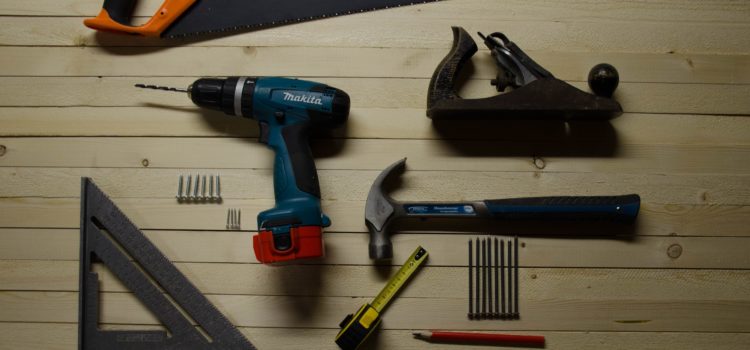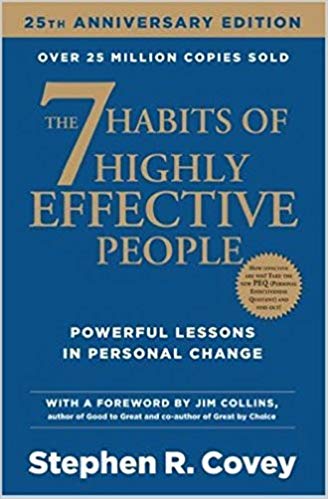

This article is an excerpt from the Shortform summary of "The 7 Habits of Highly Effective People" by Stephen Covey. Shortform has the world's best summaries of books you should be reading.
Like this article? Sign up for a free trial here .
The 7 Habits of highly effective people works to help you shift your paradigm, and apply the habits in practical and balanced ways. In habit 7: sharpen the saw, you recognize all the work you’ve done so far and can how you translate your effective habits in real life, and how they effect others.
Habit 7: Sharpen the Saw is about taking care of yourself and being socially and self-aware, so you can continue using the 7 habits.
What is Habit 7: Sharpen the Saw?
Habit 7: sharpen the saw is the habit of self-renewal, which maintains and improves the quality of all the other habits. Stephen Covey says sharpen the saw is an idea of self-renewal. You’re the instrument of your life and performance, and self-renewal is a form of the P/PC balance — your good habits and positive behavior are the P, and your physical, mental, and emotional ability to effectively carry them out is the PC. Just like you have to do maintenance on your car to keep it running at peak capacity, you need to take care of yourself to continue functioning at your best.
Heres’s one sharpen the saw example. Imagine you came across someone sawing down a tree. She tells you she’s been working for hours and is exhausted by the hard labor. When you suggest she stops for a moment and sharpens her saw to make the work go faster, she insists she has no time to use habit 7: sharpen the saw — she’s too busy sawing! Stephen Covey uses sharpen to saw to show that it is through our own selves that we can be most effective.
Self-renewal requires a proactive mindset to commit time to self-care activities, which fall into Quadrant II: important but not urgent. It can be difficult to prioritize something like going to the gym or journaling when you have so many urgent tasks pulling at your attention; however, if you neglect it too long it will eventually become an urgent Quadrant I need, like developing urgent health problems because of lack of exercise.
Habit 7: Sharpen thee saw also improves how efficiently and effectively you’re able to practice the other six habits; it creates an upward spiral of growth and self-improvement. Self-renewal nurtures your conscience, the small voice that pushes us toward what’s right and aligned with our principles. As you feed and strengthen your conscience, your conscience helps you stay disciplined and focused on a principle-centered path that fosters growth through the 7 Habits.
The Four Aspects of Habit 7: Sharpen the Saw
To continue performing at your peak, you need to prioritize habit 7: sharpen the saw in all four dimensions of your nature: physical, spiritual, mental, and social/emotional. Stephen Covey’s sharpen the saw explains the four dimensions in detail and how to balance them.
Physical Renewal. First, take care of your body, which entails eating well, exercising, and getting enough sleep and relaxation. This not only benefits your physical being, but also reinforces Habit 1 by strengthening your proactivity; each time you get yourself to the gym or make a healthy meal choice, you increase your self-esteem, self-confidence, and integrity.
Spiritual Renewal. Second is spiritual renewal, which can take many forms, such as prayer, meditation, reading, writing, and spending time in nature. This form of habit 7: sharpen the saw is vital to inspire and uplift you while reconnecting you to your center and your principles. Spiritual renewal supports with Habit 2 by keeping you closely tied to your personal mission and helping you to practice personal leadership.
Mental Renewal. Third, mental renewal means continuing your mental development and education after leaving school, especially by reading, writing, and exposing yourself to new information. The regular organizing and scheduling that Habits 2 and 3 call for requires a sharp mind, and is also a form of mental development and renewal in itself. Mental self-renewal helps you in examining your paradigms, opening your mind to others’ perspectives, and effectively communicating your own views, as we practice in Habit 5.
Social/emotional Renewal. Finally, social/emotional renewal centers around public victories and happens in everyday interactions with other people because your emotional life is largely developed and expressed in your relationships with other people (whereas physical, spiritual, and mental renewal are essential to private victories and require you to set aside personal time). Practicing the principles of interpersonal leadership, empathic listening, and synergy discussed in Habits 4,5, and 6 improves your emotional well-being; these practices require a sense of personal security, while also reinforcing that sense of security by reassuring you that Win/Win solutions, synergy, and meaningful, productive relationships with others are possible.
Habit 7: sharpen the saw needs to be balanced among all four dimensions; neglecting any aspect of self-renewal impedes the effectiveness of the rest. In this way, a balanced approach to self-renewal is synergistic because investing in one dimension raises your ability to improve the other dimensions.
The Social Mirror
Habit 7: sharpen the saw helps us attain inner peace and stability that improves our effective interdependent relationships. People’s relationships with others create a social mirror that reflects images of themselves back to them and affects their paradigms. This is essentially the concept of self-fulfilling prophecy.
You’re part of that social mirror, and how you react to others affects how they see themselves.
The effects of the social mirrors can be extreme: In one sharpen the saw example, a glitch in a school computer in England mislabeled one class of “bright” students as “dumb,” and another class of “dumb” students as “bright.” As they started the school year, the teachers’ views of their students were based primarily on these wrong reports.
When the error was realized and the students retested, their scores had dropped. Teachers had treated them as incompetent, uncooperative, and difficult. The teachers did not practice social mirroring in habit 7: sharpen the saw.
But scores went up for the students who’d been labeled “bright.” It turned out, the biggest predictor of students’ performance was not their inherent ability or lack thereof, but teachers’ expectations and how they treated students as a result. This sharpen the saw example shows that putting care into actions and people yields results.
Remember, it’s important to incorporate all 7 habits into your life if you want to become truly effective. While the 7 habits focus on things you can change, it also encourages practice of self-awareness and self-assessment, which will help you to see and appreciate the positive habits you already have.
———End of Preview———

Like what you just read? Read the rest of the world's best summary of "The 7 Habits of Highly Effective People" at Shortform . Learn the book's critical concepts in 20 minutes or less .
Here's what you'll find in our full The 7 Habits of Highly Effective People summary :
- How to prioritize the hundred tasks you have to focus on the one or two that really matter
- The right way to resolve every disagreement and argument
- How to avoid burning out and succeed over 20+ years






